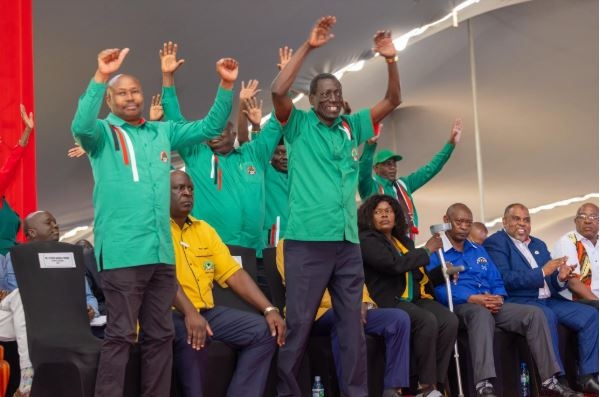
Lawyer Chacha Mwita is due back in court on Tuesday, as the judge is set to determine whether he should remain in custody for 20 days, as requested by the Anti‑Terrorism Police Unit (ATPU).
In their application, the state argued that a prolonged detention is necessary for ATPU to finish gathering evidence related to the ongoing probe.
He was presented at the Kahawa Law Courts.
If the court approves the request by the Anti-Terror Police Unit, Mwita will remain in custody at Nairobi’s Industrial Area Police Station as investigations proceed.
Officials have also revealed that additional arrests related to terrorism and a cryptocurrency financing network are underway.
Mwita, who was arrested in Mombasa over the weekend, is accused of facilitating terrorist acts and providing services to terrorist organisations.
He was subsequently transported to Nairobi, where he spent the weekend in police custody.
The prosecutors allege that Mwita facilitated terrorist acts and provided services to terrorist organizations.
They claim investigations have linked him to a recruitment network on the coast, purportedly assisting youths to join terrorist groups.
Detectives also allege that he used multiple mobile phone numbers to receive funds from Binance accounts allegedly connected to financing terrorist activities both locally and internationally.
However, Mwita’s legal team, led by Advocates Lempaa Soyinka and Ayota Magati, strongly denied the allegations.
They argued that providing legal representation to terror suspects is not a criminal act and described the case as an attempt to frustrate lawyers from offering their services to accused individuals.
The case has sparked considerable public interest because of the serious nature of the allegations and Mwita’s profile.
Mwita is known in some circles as a strong defender of civil rights, including the rights of suspected terror suspects, and has previously spoken publicly about the balance between counter‑terrorism and human rights.
His arrest and arrignment comes amid heightened sensitivity over terrorism-related investigations in Kenya, where the ATPU plays a critical role in handling national security cases involving terror financing or support.
In their application, the state argued that a prolonged detention is necessary for ATPU to finish gathering evidence related to the ongoing probe.
The case has drawn public attention because of the serious nature of the allegations and Mwita’s profile.
A veteran lawyer, Mwita is well known for defending clients facing terror-related charges over the past decade.
This marks a dramatic reversal, as he now faces the very charges he has spent years contesting on behalf of others.













